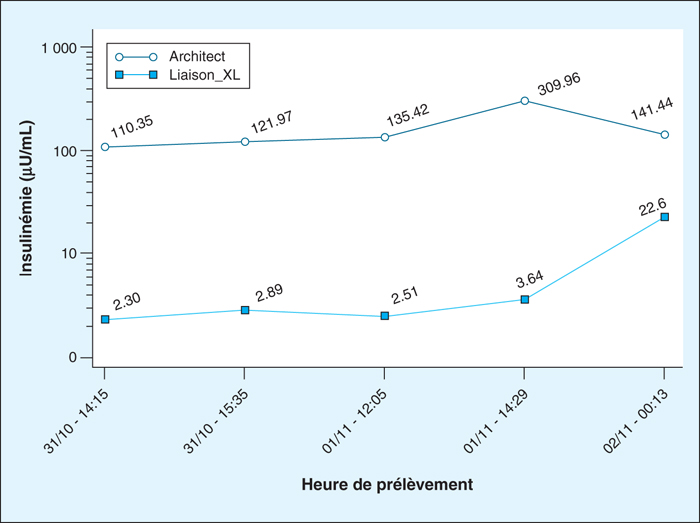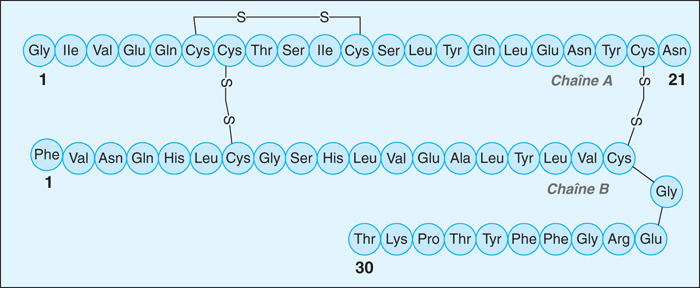Annales de Biologie Clinique
MENUFactitious hypoglycemia : “a never-ending story”? Volume 76, issue 4, Juillet-Août 2018
- Key words: diabetes, hypoglycemia, insulin, immunoassay, cross-reactivity
- DOI : 10.1684/abc.2018.1362
- Page(s) : 439-44
- Published in: 2018
Our team of diabetologist is challenged by the case of a 41 year-old woman with recurrent hypoglycaemic episodes. Her clinical background was complex with, among others, a neuroendocrine tumor, a nonalcoholic steatohepatitis and an adrenal insufficiency; these conditions require the exploration of several potential causes. After excluding an endogenous etiology, a factitious hypoglycemia was quicky suspected by clinicians. However, several venous samples showed normal insulinemia and a moderately decreased C-peptide. After multidisciplinary team discussion and facing a strong clinical suspicion, samples were sent to another laboratory to confirm the insulin results. Substantially supratherapeutics insulin concentrations were highlighted. This confirms the previous suspicion of surreptitious insulin administration with a recombinant form unrecognized by our routinely used analyzer. This observation leads us to briefly discuss the lack of cross-reactivities observed with many different insulin assays.



